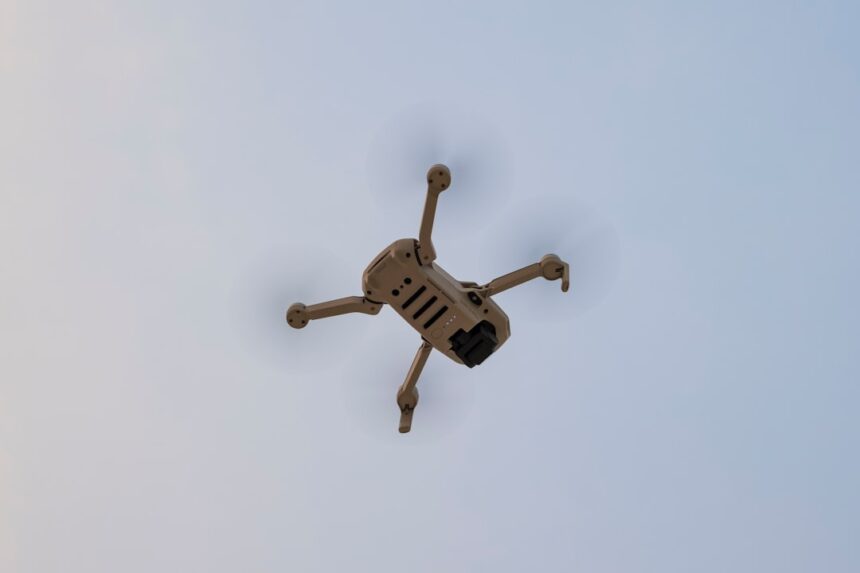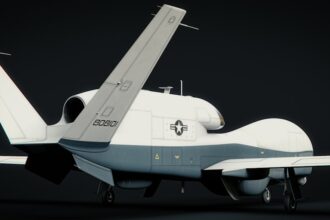Post-Traumatic Stress Disorder (PTSD) is a mental health condition that can develop after an individual experiences or witnesses a traumatic event. For soldiers, the nature of their work often places them in high-stress environments where they are exposed to life-threatening situations, violence, and the loss of comrades. The symptoms of PTSD can manifest in various ways, including flashbacks, severe anxiety, nightmares, and uncontrollable thoughts about the traumatic event.
Understanding PTSD in soldiers is crucial, as it not only affects their mental well-being but also impacts their relationships, careers, and overall quality of life. The military has long recognized the prevalence of PTSD among its ranks, particularly following conflicts such as the Vietnam War and more recent engagements in Iraq and Afghanistan. The stigma surrounding mental health issues has historically made it difficult for soldiers to seek help, often leading to untreated conditions that can worsen over time.
As awareness grows, however, there is a concerted effort to destigmatize mental health care within the military community, encouraging soldiers to speak openly about their experiences and seek the support they need.
Key Takeaways
- PTSD in soldiers is a complex psychological condition that can result from exposure to traumatic events during combat.
- The rise of drone warfare has changed the nature of combat, allowing soldiers to engage in warfare from a distance.
- Drone warfare can have a significant psychological impact on soldiers, leading to feelings of detachment and moral injury.
- Technology plays a role in both causing and treating PTSD in soldiers, with advancements in virtual reality therapy showing promise.
- Soldiers engaged in drone warfare often experience isolation and lack the camaraderie of traditional combat, which can exacerbate mental health issues.
The Rise of Drone Warfare
In recent years, drone warfare has emerged as a significant component of modern military strategy. Unmanned aerial vehicles (UAVs) have transformed the battlefield by allowing for surveillance and targeted strikes without putting soldiers in direct harm’s way. This technological advancement has been lauded for its precision and efficiency, enabling military forces to conduct operations with reduced risk to personnel.
However, the rise of drone warfare has also raised complex questions about its implications for soldiers who operate these machines. The use of drones has expanded rapidly since their introduction in military operations, particularly in counterterrorism efforts. As nations increasingly rely on this technology, the dynamics of warfare have shifted dramatically.
While drones can minimize casualties among troops, they also create a new set of challenges for those who pilot them. The psychological toll of engaging in combat from a distance can be profound, as operators grapple with the consequences of their actions without the immediate feedback that comes from traditional combat scenarios.
The Psychological Impact of Drone Warfare on Soldiers

The psychological impact of drone warfare on soldiers is a growing area of concern among mental health professionals and military leaders alike. Unlike traditional combat, where soldiers are physically present on the battlefield and witness the immediate effects of their actions, drone operators often engage in warfare from thousands of miles away. This detachment can lead to a unique set of psychological challenges, including feelings of disconnection from the consequences of their actions and a diminished sense of accountability.
Moreover, drone operators may experience what is known as “moral injury,” a term that describes the psychological distress that arises from actions that conflict with one’s moral beliefs. The ability to strike targets with precision can create a sense of power; however, it can also lead to guilt and shame when operators reflect on the human cost of their decisions. This internal conflict can exacerbate feelings of isolation and anxiety, contributing to the development of PTSD and other mental health issues.
The Role of Technology in PTSD
| Technology | Role in PTSD |
|---|---|
| Virtual Reality | Exposure therapy, desensitization, and reprocessing |
| Mobile Apps | Self-help tools, symptom tracking, and relaxation techniques |
| Telemedicine | Remote therapy sessions and access to mental health professionals |
| Biometric Devices | Monitoring stress levels and providing biofeedback |
Technology plays a dual role in the context of PTSD among soldiers engaged in drone warfare. On one hand, advancements in technology have provided new tools for monitoring and addressing mental health issues. Telehealth services, mobile applications for mental wellness, and virtual reality therapies are becoming increasingly available to help soldiers cope with PTSD symptoms.
These innovations offer accessible resources that can bridge the gap between soldiers and mental health care providers. On the other hand, technology can also contribute to the complexities surrounding PTSD in drone operators. The very nature of drone warfare—characterized by remote engagement—can lead to a sense of disconnection from the battlefield experience.
This detachment may hinder emotional processing and make it more challenging for operators to confront their feelings about their actions. As technology continues to evolve, understanding its impact on mental health will be essential for developing effective interventions for those affected by PTSD.
The Isolation of Drone Warfare
The isolation experienced by drone operators is a significant factor in their mental health outcomes. Unlike traditional soldiers who share experiences with their comrades in close quarters, drone operators often work in solitary environments, separated from the chaos of combat. This physical distance can lead to emotional distance as well, making it difficult for operators to process their experiences and share their feelings with others who might understand.
Furthermore, the nature of drone warfare can create a sense of alienation from both civilian life and military peers. Operators may struggle to relate to those who have not experienced combat firsthand or who do not understand the complexities of remote warfare. This isolation can exacerbate feelings of loneliness and despair, making it even more challenging for individuals to seek help or connect with support systems.
The Ethical Debate Surrounding Drone Warfare

The ethical implications of drone warfare have sparked intense debate among military leaders, policymakers, and ethicists alike. Proponents argue that drones provide a more humane way to conduct warfare by minimizing risks to soldiers and reducing collateral damage. However, critics contend that the detachment inherent in drone operations can lead to a dehumanization of warfare, where operators may become desensitized to violence and its consequences.
This ethical dilemma extends beyond the battlefield; it raises questions about accountability and transparency in military operations. The ability to conduct strikes remotely can create a perception that there are fewer consequences for actions taken during combat. As discussions around the morality of drone warfare continue, it is essential to consider how these ethical concerns intersect with the mental health challenges faced by those who operate these machines.
The Long-term Effects of Drone Warfare on Soldiers’ Mental Health
The long-term effects of drone warfare on soldiers’ mental health are still being studied, but early findings suggest that the psychological impact can be profound and lasting. Many drone operators report experiencing symptoms consistent with PTSD, including anxiety, depression, and intrusive thoughts about their missions long after they have returned home. The unique nature of their experiences may complicate recovery efforts and necessitate tailored approaches to treatment.
Additionally, the stigma surrounding mental health issues within military culture can hinder individuals from seeking help or discussing their struggles openly. As a result, many may suffer in silence, leading to chronic mental health issues that could have been addressed with early intervention. Understanding these long-term effects is crucial for developing effective support systems and treatment options for those affected by drone warfare.
Coping Mechanisms for Soldiers in Drone Warfare
Coping mechanisms play a vital role in helping soldiers navigate the psychological challenges associated with drone warfare. Many operators find solace in peer support groups where they can share their experiences with others who understand the unique pressures they face. These groups provide a safe space for individuals to express their feelings and learn from one another’s coping strategies.
In addition to peer support, mindfulness practices such as meditation and yoga have gained popularity among military personnel as effective tools for managing stress and anxiety.
By integrating these coping mechanisms into their daily routines, soldiers can develop resilience and improve their overall mental well-being.
Support Systems for Soldiers Dealing with PTSD
Support systems are essential for soldiers dealing with PTSD resulting from drone warfare experiences. Military organizations have begun implementing programs aimed at providing comprehensive mental health care tailored specifically for drone operators.
Family support also plays a critical role in the recovery process. Educating family members about PTSD can foster understanding and empathy within households, creating an environment where individuals feel safe discussing their struggles. Additionally, community resources such as veteran organizations can offer valuable support networks that extend beyond military service, helping individuals reintegrate into civilian life while addressing their mental health needs.
The Need for Further Research and Understanding
As drone warfare continues to evolve, there is an urgent need for further research into its psychological impact on soldiers. Understanding how remote combat affects mental health will be crucial for developing effective interventions and support systems tailored specifically for this population. Researchers must explore not only the prevalence of PTSD among drone operators but also the unique factors contributing to its development.
Moreover, interdisciplinary collaboration between mental health professionals, military leaders, ethicists, and technologists will be essential in addressing these complex issues comprehensively. By fostering dialogue across various fields, stakeholders can work together to create innovative solutions that prioritize the mental well-being of soldiers engaged in drone warfare.
Moving Forward: Addressing the Mental Health of Soldiers in Drone Warfare
Moving forward requires a commitment to addressing the mental health needs of soldiers involved in drone warfare comprehensively. This includes not only improving access to mental health care but also fostering an environment where individuals feel empowered to seek help without fear of stigma or judgment. Military organizations must prioritize training programs that educate personnel about PTSD and its symptoms while promoting open discussions about mental health within their ranks.
Additionally, ongoing research into the psychological effects of drone warfare will be vital for informing policy decisions and shaping future training protocols. By prioritizing mental health care and support systems for those affected by drone operations, society can ensure that soldiers receive the care they need to heal and thrive after their service. Ultimately, addressing these challenges head-on will contribute to a healthier military community and promote resilience among those who serve.
Drone warfare has become an increasingly prevalent aspect of modern military operations, raising significant concerns about its psychological impact on soldiers. The remote nature of drone operations can create a unique form of stress and detachment, potentially leading to post-traumatic stress disorder (PTSD) among operators. An insightful article discussing the psychological effects of drone warfare on military personnel can be found on the website “In the War Room.” This article delves into the complexities of drone operations and their potential to cause PTSD, offering a comprehensive analysis of the mental health challenges faced by soldiers in this new era of warfare. For more information, you can read the full article here.
FAQs
What is drone warfare?
Drone warfare refers to the use of unmanned aerial vehicles (UAVs) to conduct military operations, including surveillance, reconnaissance, and targeted strikes.
What is PTSD?
Post-traumatic stress disorder (PTSD) is a mental health condition that can develop after experiencing or witnessing a traumatic event, such as combat, natural disasters, or violent personal assaults.
How does drone warfare impact soldiers’ mental health?
Soldiers involved in drone warfare may experience mental health issues such as PTSD due to the prolonged exposure to high-stress situations, witnessing the aftermath of drone strikes, and the ethical and moral dilemmas associated with remote killing.
What are the symptoms of PTSD in soldiers?
Symptoms of PTSD in soldiers may include flashbacks, nightmares, severe anxiety, uncontrollable thoughts about the event, emotional numbness, and difficulty sleeping or concentrating.
How is PTSD in soldiers treated?
Treatment for PTSD in soldiers may include therapy, medication, and support groups. Cognitive-behavioral therapy (CBT) and eye movement desensitization and reprocessing (EMDR) are commonly used therapeutic approaches.
Are there specific challenges for soldiers in drone warfare related to PTSD?
Soldiers involved in drone warfare may face unique challenges related to PTSD, such as the lack of physical separation from the battlefield, the disconnect between the act of killing and its consequences, and the potential for moral injury.
What measures are in place to support soldiers dealing with PTSD from drone warfare?
Military organizations and veterans’ support groups provide resources and programs to support soldiers dealing with PTSD from drone warfare, including counseling services, peer support networks, and mental health awareness initiatives.




